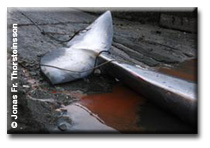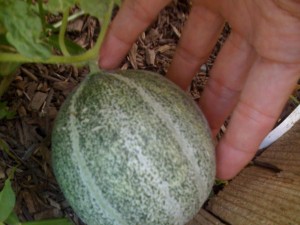ALERT OF THE WEEK- Stop Monsanto’s Genetically Engineered Wheat
 Monsanto and the biotech bullies are once again moving to tighten their grip on the world’s food supply. Genetically engineered (GE) varieties now account for 70-90% of all conventional (non-organic) corn, soybeans, cotton, and canola grown in the U.S. Joining the growing menu of unlabeled and untested gene-spliced Frankenfoods, genetically engineered sugar (derived from GE sugar beets) hit store shelves in 2008. Now it appears that the most controversial crop of them all, Monsanto’s GE wheat, is not far behind, at least if industry gets its way. Given that wheat is such a major global crop and essential ingredient in bread, breakfast cereals, pasta and other everyday foods, the force-feeding of unlabeled GE wheat on the public would represent a major conquest for Monsanto and the biotech industry.
Monsanto and the biotech bullies are once again moving to tighten their grip on the world’s food supply. Genetically engineered (GE) varieties now account for 70-90% of all conventional (non-organic) corn, soybeans, cotton, and canola grown in the U.S. Joining the growing menu of unlabeled and untested gene-spliced Frankenfoods, genetically engineered sugar (derived from GE sugar beets) hit store shelves in 2008. Now it appears that the most controversial crop of them all, Monsanto’s GE wheat, is not far behind, at least if industry gets its way. Given that wheat is such a major global crop and essential ingredient in bread, breakfast cereals, pasta and other everyday foods, the force-feeding of unlabeled GE wheat on the public would represent a major conquest for Monsanto and the biotech industry.
Although Monsanto withdrew their applications to the U.S. and Canadian governments for approval of genetically engineered wheat in 2004 because of tremendous pressure from the OCA and hundreds of our allied public interest groups and farmers (as well as pressure from large food companies such as General Mills), it looks like we’re in for another round of battle.
Wheat industry groups in the United States, Canada and Australia announced on May 14, 2009, they would work toward the objective of “synchronized commercialization of biotech traits in the wheat crop.” For the sake of the Earth and public health, we must stop them.


 On June 22, over 80 governments from around the world will meet at the International Whaling Commission (IWC) meeting to decide the future of the world’s whales. A global ban on commercial whaling that has held strong for over 25 years is in danger of being revoked – which means whales around the world could once again be subjected to terrible suffering and agonizing deaths.
On June 22, over 80 governments from around the world will meet at the International Whaling Commission (IWC) meeting to decide the future of the world’s whales. A global ban on commercial whaling that has held strong for over 25 years is in danger of being revoked – which means whales around the world could once again be subjected to terrible suffering and agonizing deaths. City Limits –
City Limits –  Responding to an April suit by the Center for Biological Diversity and allies, last week the National Marine Fisheries Service ordered a six-month emergency closure of the Gulf of Mexico’s bottom longline fishery to halt sea-turtle slaughter. When sea turtles get tangled among the hundreds (or even thousands) of baited hooks used by longline fishing vessels, they sustain life-threatening injuries. If they don’t drown while caught in the hooks, turtles are often unable to snap out of the extreme psychological stress of capture and die immediately after release. According to the Service’s data, fishery vessels in the Gulf caught nearly 1,000 sea turtles — including about 800 federally protected loggerheads — between July 2006 and December 2008, nearly eight times the number the agency itself deemed permissible. Now the fishery will be closed for 180 days, starting on May 16, to allow for a new evaluation of the fishery’s impacts and ensure it’s not likely to jeopardize the existence of sea turtle species.
Responding to an April suit by the Center for Biological Diversity and allies, last week the National Marine Fisheries Service ordered a six-month emergency closure of the Gulf of Mexico’s bottom longline fishery to halt sea-turtle slaughter. When sea turtles get tangled among the hundreds (or even thousands) of baited hooks used by longline fishing vessels, they sustain life-threatening injuries. If they don’t drown while caught in the hooks, turtles are often unable to snap out of the extreme psychological stress of capture and die immediately after release. According to the Service’s data, fishery vessels in the Gulf caught nearly 1,000 sea turtles — including about 800 federally protected loggerheads — between July 2006 and December 2008, nearly eight times the number the agency itself deemed permissible. Now the fishery will be closed for 180 days, starting on May 16, to allow for a new evaluation of the fishery’s impacts and ensure it’s not likely to jeopardize the existence of sea turtle species.